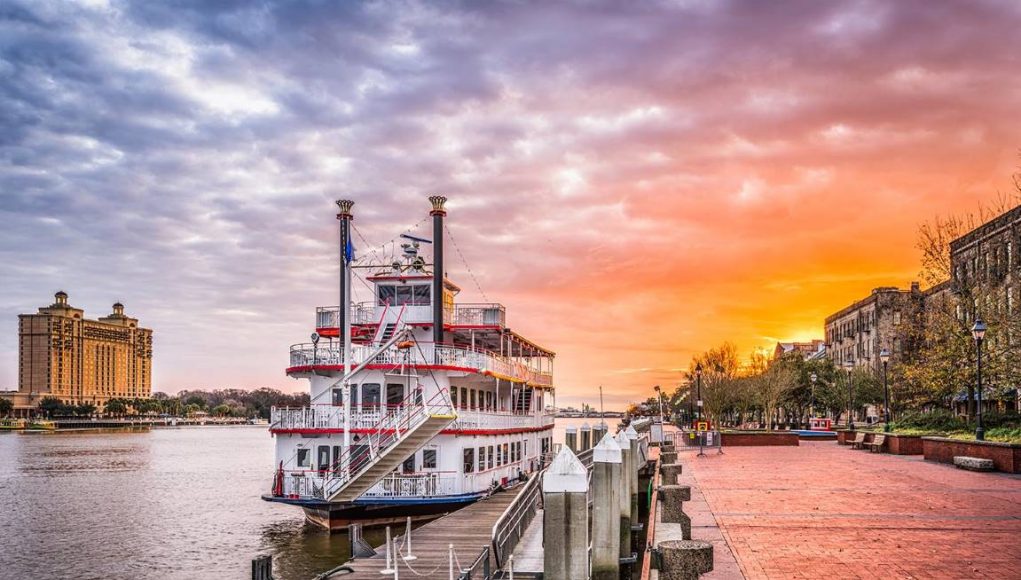“To understand the world” William Faulkner once said, “you must first understand a place like Mississippi”. And to understand a place like Mississippi, you must first understand its food – a cuisine deeply rooted both in its fertile land and its difficult history, from civil war to civil rights. Zoey Goto take us on a road trip through the Magnolia State, from Jackson down to the Gulf Coast, soaking up its cuisine and culture, and having a Huckleberry Finn moment on the Mississippi River.
Mississippi may have given us mega-stars such as Elvis and B.B. King, but it still remains the kind of place where you can walk into a rustic juke joint and hear mind-blowing, undiscovered talent. This is particularly true of Jackson, the state’s capital, where the best food and music spots are hyper-local. Ask a Jackson insider and they’ll tell you that Hal & Mal’s Sunday evening open-mic sessions are not to be missed. Each week, this former warehouse in the Downtown area springs to life with the sounds of home-grown musicians playing blues and R&B, as an appreciative crowd props up the neon-lit bar and devours cups of the legendary gumbo.
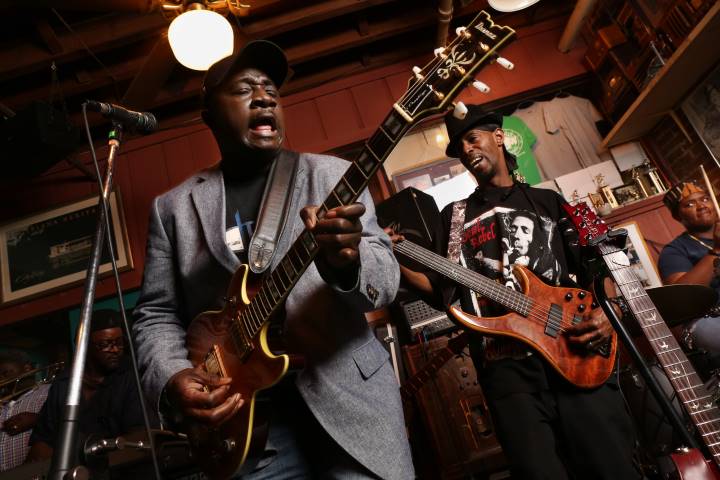
Visiting Hal & Mal’s on a balmy evening, a hushed reverence fills the room when a local singer steps onstage for an emotional rendition of Sam Cooke’s A Change Is Gonna Come, making Mississippi’s past feel ever more present. The brutal slave era and the civil rights struggles have cast a long shadow in Mississippi, and the following morning I explore this further at Jackson’s Civil Rights Museum, which focuses on local developments between 1945-1970. The emphasis is on telling the individual’s story, including activists such as Medgar Evers and Fannie Lou Hamer, and this personal approach makes the overall narrative evermore powerful. Evenly and sensitively handled, this museum offers a great foundation for understanding the history of race relations in Mississippi.
At daybreak the following morning I head over to Vicksburg to be met by the charismatic John Ruskey, AKA Captain Driftwood, a waterborne adventurer who knows Mississippi’s rivers like the back of his hand. Standing with his trusty canoe by the mouth of the Mighty Mississippi River, with a handsome paddle steamer in the distance, our introduction had all the elements of a Mark Twain novel.
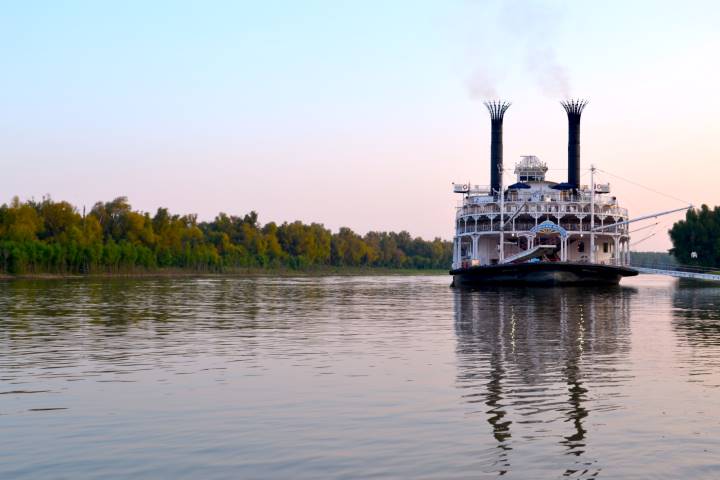
“Once you feel the mud between your toes, you’ll keep returning to the Mississippi River” Captain Driftwood assures me, as we climb into the canoe and paddle along the chocolate colored waterways, passing vast tanker ships, and thankfully avoiding the alligators known to lounge close to shore. Having navigated our way across the flow of the great river, which is the second largest in North America, we tether up at a picturesque castaway island, with a swampy forest fringed with white sands. Captain Driftwood serenades us with a few blues classics on his guitar, as we bask on the banks and watch carp leap out of the waters.
Safely back on dry land, the next stop is a tour of the Vicksburg National Military Park. The huge battleground was the scene of the 47-day siege during the civil war, resulting in the Union taking control of the Mississippi River. In keeping with the military theme, that evening I dine at the opulent Anchuca Historic Mansion, an antebellum house that accommodated wounded soldiers from both sides during the war.
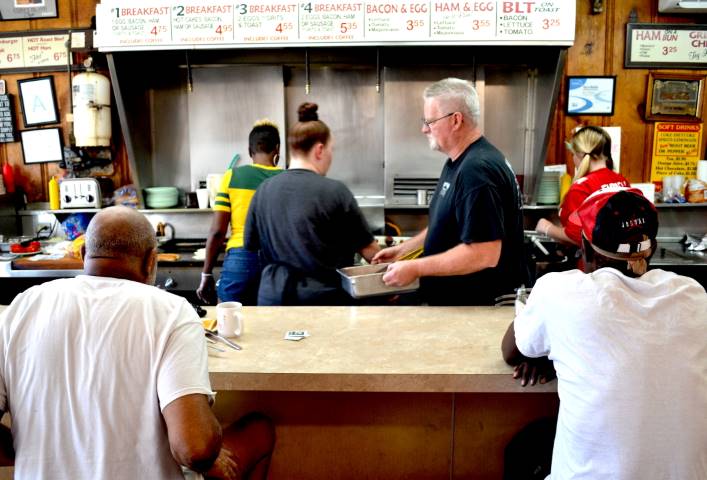
Driving past fields of blossoming cotton, pillared plantation homes, and restaurants with evocative names such as Fat Mama’s Tamales and Biscuits & Blues, the following day I make a pit stop in Hattiesburg for a Po’Boy lunch at the Coney Island Café. This third-generation diner opened during The Great Depression and is an authentic slice of pure Americana. The interiors and menu have changed little since the mid-century, and the lonesome horn of the passing freight trains only adds to the nostalgic vibe of this culinary relic.
The surrounding area of Hattiesburg was a crucial site for the civil rights movement during the Freedom Summer of 1964, where volunteers, many from out-of-state, campaigned for increased African American voter registration. History was made just a few steps from Coney Island Café, when high school teacher Sandra Adickes was arrested for attempting to take her class of African American students to eat at a local lunch counter. The ensuing court case ruled in her favor and forever tweaked the course of the American legal system.
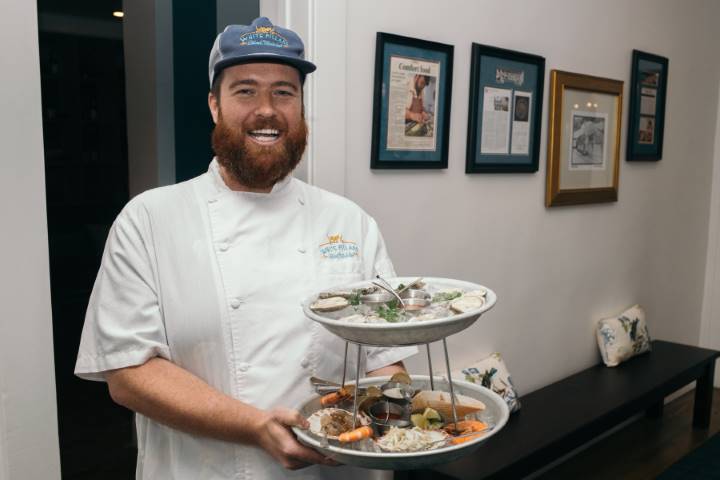
Hitting the road again I head to Mississippi’s Gulf Coast, a surprisingly picturesque stretch of coastline, with vanilla-sand beaches lined with palm trees. It’s here that a crop of hip young chefs are redefining Southern food. First stop is the White Pillars restaurant in Biloxi, where Mississippian chef and owner Austin Sumrall has created an award-winning restaurant, championing Southern dishes with a progressive twist – think mac & cheese topped with a fried chicken skin crumble or BBQ pork belly cooked Korean style – made with locally sourced ingredients. “I would feel unfaithful to the native fish if I brought from further afield” laughs Austin, gesturing to the wide expanse of water dotted with fishing boats, clearly visible from his restaurant window. Seafood is the lifeblood of this region. The start of the shrimping season is marked with colorful festivities, including a blessing of the fleet ceremony and the annual crowning of the shrimp queen, a kind of aquatic version of a prom celebration.
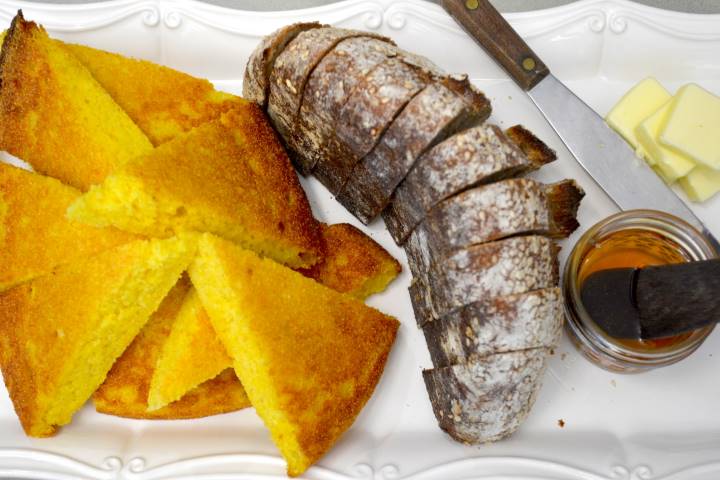
At the Maritime & Seafood Industry Museum in Biloxi, chef Robby Holmes gives a cooking demonstration convincingly showcasing that Southern food can be both healthy and forward-looking. “You may be surprised to hear that it’s now possible to eat vegetarian in The South!” Robby jokes, dishing up hoppin’ john beans served with preserved lemons, alongside a skillet-cooked corn bread. “Southern food is really an anagram for different cultures,” he notes, proceeding to trace local dishes such as shrimp and grits back to the Native Americans and gumbo back to early French settlers.
“Aside from its rich historical heritage, Mississippi food is worth sampling as we have an innate sense of hospitality in The South” Robby muses “If anything is going to make food taste good, it’s love. And Mississippi food is made with a whole heap of love”.
For Mississippi trip ideas visit: visitmississippi.org


